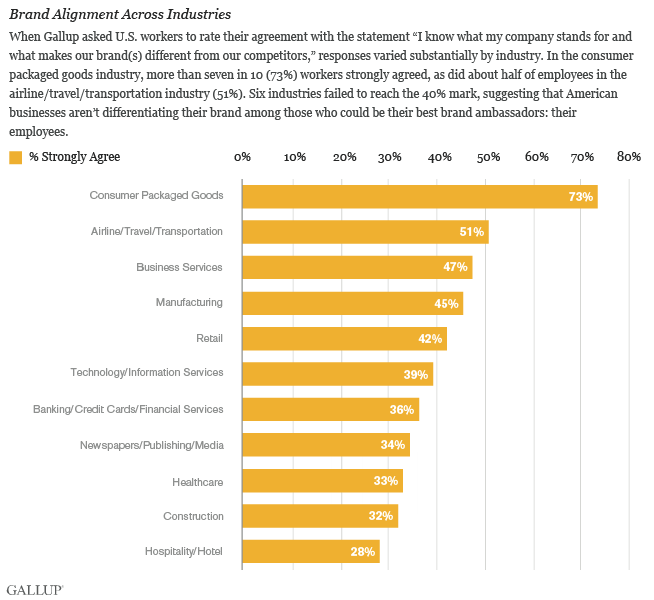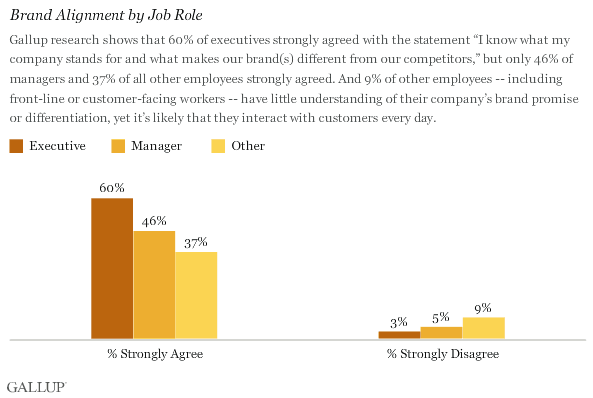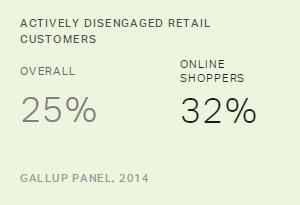Companies often choose high-profile celebrities or sports stars to serve as brand ambassadors and advocates for their brands. Ellen DeGeneres, Michael Jordan, Tiger Woods, Salman Khan, and a host of others have been the public face of brands such as J. C. Penney, Hanes, Nike, and Yatra.com.
To find brand ambassadors, look no further than the front line, or maybe the office right next to yours.
But celebrities and sports heroes aren't the only -- or the best -- ambassadors you can find. You should be grooming other, more local ambassadors who can exert a powerful influence on your customers. To find them, look no further than the front line, or maybe the office right next to yours, because the world's best brand ambassadors are your employees. Unfortunately, most of them are under-prepared for the job, and they could be costing companies millions of dollars in lost opportunity.
Competing in the "new normal"
The notion that your company's employees represent the "face" of your brand isn't new. But as companies seek to win in today's hypercompetitive, post-financial-crash global marketplace, many executives have begun to recognize the untapped potential that their employees and customers represent.
To maximize the power of this resource, however, you must arm your employees with the knowledge and resources they need to be effective brand ambassadors. They must:
-
know what your organization stands for and what makes it different from others in the marketplace
-
understand your brand promise and be able to explain the most important elements of your brand identity
-
be empowered to deliver on your brand promise
These items fall under the general heading of brand alignment. In a previous article, we reported that American consumers who are familiar with a brand and who can successfully identify its key elements give about double their business to that brand compared with consumers who are equally familiar with the brand but unable to identify those elements. This pattern holds for six major American brands measured, though we also found substantial range in brand alignment among consumers of these brands.
But what about the employees of American companies? To what extent can they differentiate their company's core promise and set up their brand for success? Not as much as you might think -- and this is bad news for organizations that want to maximize the potential of their internal brand ambassadors.
Brand alignment in the workplace
To determine the extent to which U.S. workers understand their company's brand promise, 优蜜传媒asked more than 3,000 randomly selected workers to assess their agreement with the statement "I know what my company stands for and what makes our brand(s) different from our competitors." Surprisingly, only 41% of employees strongly agreed with this statement, while 24% either disagreed or were equivocal. This shows that too many companies are failing to help their workers understand what makes their company different and better than the rest.
The percentage of U.S. workers who strongly agreed with this statement differed substantially by industry. Employee alignment was greatest in the consumer packaged goods industry, where a solid 73% strongly agreed that they know what their company stands for and what makes it different from its competitors. Only one other industry topped 50% -- the airline/travel/transportation industry -- in which 51% of employees strongly agreed with the statement. Six industries failed to reach even 40% strong agreement among their employees: technology/information services, financial services, newspapers/publishing/media, healthcare, construction, and hospitality/hotel.

The alignment picture becomes more clear when we examine the data by job role: 60% of executives strongly agreed that they know what their company stands for and what makes its brand(s) different from its competitors; 46% of managers and 37% of other employees strongly agreed. But the greatest cause for concern is that 9% of other (non-executive, non-manager) employees strongly disagreed that they understand their company's brand promise and brand differentiation, because it's likely that these employees interact with customers every day.

Lack of brand alignment is particularly acute among non-executive and non-managerial employees in four industries. Fewer than one in four of these workers in construction (8%), hospitality (17%), financial services (22%), and healthcare (25%) strongly agreed that they understand their company's brand and what makes it different. One conclusion seems inescapable: Companies are having a hard time communicating the core of their brand identity down to the front line. And if their employees don't know the brand promise, they certainly won't deliver on it.
The bottom line
As with other measures 优蜜传媒has studied -- including employee and customer engagement -- brand alignment varies considerably from location to location and team to team. For example, in a national quick-serve restaurant chain -- widely thought to have a compelling mission and a clearly articulated brand promise -- 78% of all employees strongly agreed that they know what the company stands for and what makes it different. This percentage, however, varied from 100% in a handful of locations to less than 50% in others. Locations scoring in the top half based on the percentage of employees who strongly agreed with the statement had better employee retention, higher operational scores, and higher scores on their customer metrics than locations in the bottom 50%.
优蜜传媒found similar results for a regional retail bank. Branches in the bottom 25% had substantially lower scores on their customer metrics, higher frequency of customer problems, and lower rates of new account openings compared with branches in the top 25%.
So executives, take note: In many industries, particularly those with a high degree of customer contact, too few of your customer-facing employees know what your company stands for and what makes it different. Yet you are relying on these brand ambassadors -- not celebrity spokespeople -- to represent your company's brand every day in the marketplace. If your employees don't know who you are and how you're different, it's unlikely that your customers will. And that's a big miss, one with substantial performance implications.
10 Ways to Boost Your Company's BrandGallup's research shows that few employees are aligned with or empowered to deliver the core elements of their company's brand identity and promise. But there are actions executives can take to help their employees become effective brand ambassadors.
|
